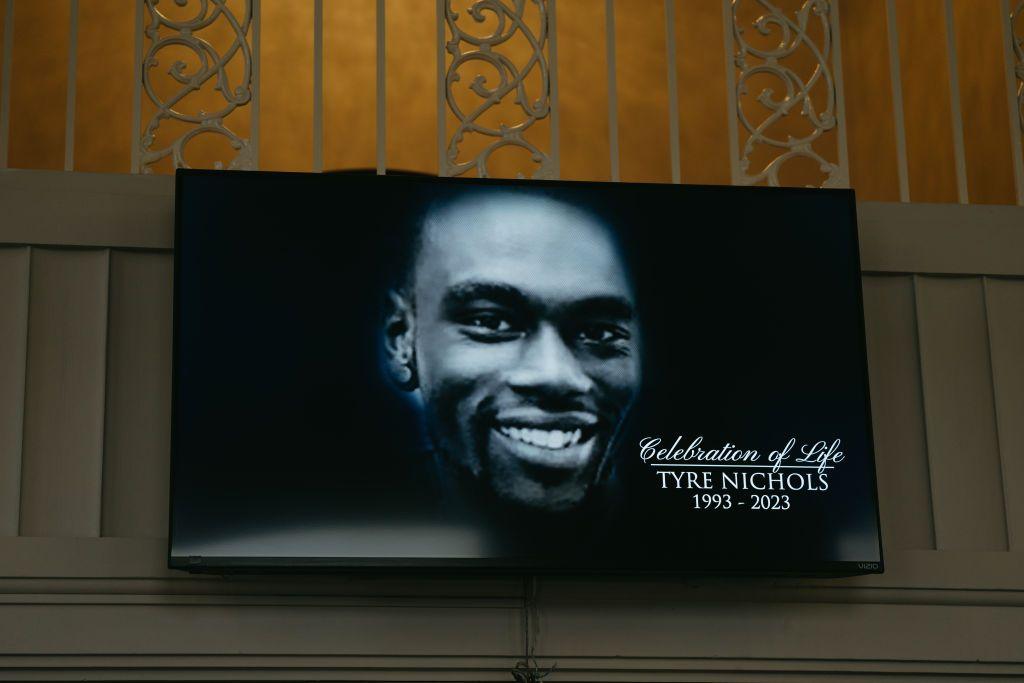Memphis police use 'excessive force', US justice department says

- Published
The Memphis Police Department uses excessive force and follows policies that discriminate against black people, the US justice department has said.
This includes unnecessarily escalating encounters with some of the city's "most vulnerable" residents, Kristen Clarke, assistant attorney general, said on Thursday.
The justice department began investigating the police force for the Tennessee city in 2023, after the death of Tyre Nichols, who was brutally beaten by police during a traffic stop.
In its report from the investigation, released on Wednesday, the department said Memphis police "must correct these issues" that it said were part of a "pattern" of civil rights violations.
In response to the justice department's report and calls for change, the mayor of Memphis, Paul Young, said on Thursday that the city has already enacted reforms.
While the report acknowledged these changes, it also said there are "additional remedial measures" needed "to fully address" the listed issues.
On Wednesday, the city of Memphis sent a letter to the justice department, suggesting that the investigation concluded too soon.
Signed by Chief Legal Officer Tannera Gibson, the city's letter said the investigation "only took 17 months to complete, compared to an average of 2-3 years... implying a rush to judgement".
In the press conference on Thursday, Ms Clarke called the investigation "comprehensive and exhaustive".
The investigation included interviews with dozens of police, residents, and city officials, she said, and reviews of thousands of documents and hundreds of hours of body-camera footage.
It found that, along with using excessive force, the Memphis police "stop, search, and arrest people unlawfully" and "discriminate against people with behavioural disabilities", Ms Clarke said.
It also found "their policies have a discriminatory effect on black people", she said.
In one instance, she said, officers tackled a man and held him down by his neck for littering in a park.
The justice department sent a consent decree to Memphis city officials on Wednesday, which would require federal oversight to ensure changes are made. Memphis so far has not signed onto the agreement.
In its response letter, city officials said they did not have "adequate time or opportunity to review" the justice department's findings before agreeing, local news reported.
The city "can make more effective and meaningful change by working together with community input" rather than a "costly and complicated federal government consent decree", Mayor Young said.
Ms Clarke said on Thursday that the justice department could sue the city if it refuses to comply.
"The people of Memphis deserve a police department and city that protects their civil and constitutional rights, garners trust and keeps them safe," Ms Clarke said.
Video footage of the 7 January 2023 incident involving Tyre Nichols shows police officers using Tasers, as well as kicking and punching Mr Nichols after he was pulled over whilst driving.
He died three days later in hospital. An autopsy report said the cause was blunt force injuries.
Five former Memphis police officers involved were fired and later charged with federal civil rights violations over Mr Nichols' death.
Two officers pled guilty and the other three were found guilty by a jury.
Mr Nichols was black, as are the former officers.
His death led to national outcries for police reform and drew intense scrutiny towards Memphis's police department, where more than 50% of officers are black.
Roughly 64% of Memphis residents are also black.